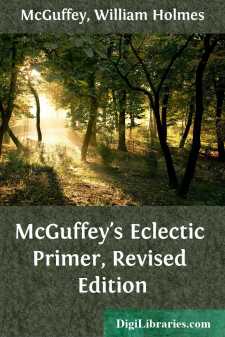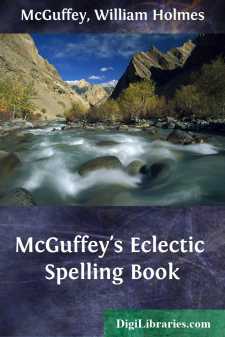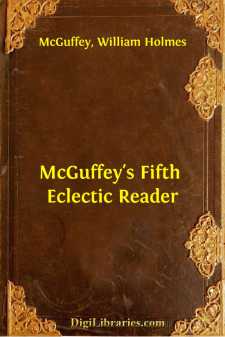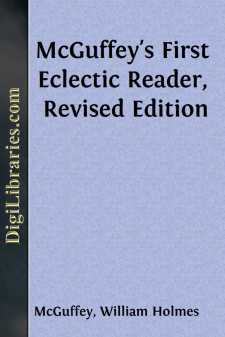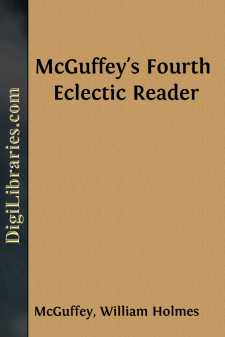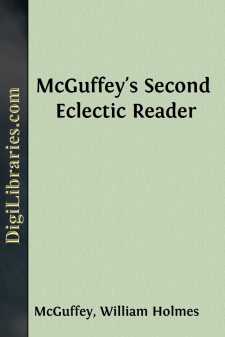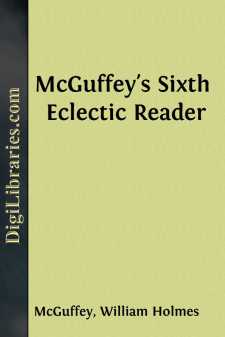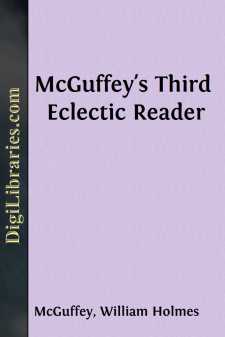Categories
- Antiques & Collectibles 13
- Architecture 36
- Art 48
- Bibles 22
- Biography & Autobiography 813
- Body, Mind & Spirit 142
- Business & Economics 28
- Children's Books 17
- Children's Fiction 14
- Computers 4
- Cooking 94
- Crafts & Hobbies 4
- Drama 346
- Education 46
- Family & Relationships 57
- Fiction 11829
- Games 19
- Gardening 17
- Health & Fitness 34
- History 1377
- House & Home 1
- Humor 147
- Juvenile Fiction 1873
- Juvenile Nonfiction 202
- Language Arts & Disciplines 88
- Law 16
- Literary Collections 686
- Literary Criticism 179
- Mathematics 13
- Medical 41
- Music 40
- Nature 179
- Non-Classifiable 1768
- Performing Arts 7
- Periodicals 1453
- Philosophy 64
- Photography 2
- Poetry 896
- Political Science 203
- Psychology 42
- Reference 154
- Religion 513
- Science 126
- Self-Help 84
- Social Science 81
- Sports & Recreation 34
- Study Aids 3
- Technology & Engineering 59
- Transportation 23
- Travel 463
- True Crime 29
William Holmes McGuffey
William Holmes McGuffey was an American educator and author best known for creating the McGuffey Readers, a series of elementary school textbooks widely used in the 19th century. Born in 1800, McGuffey's educational philosophy emphasized moral lessons, literacy, and the Protestant work ethic, profoundly shaping American education. His readers, which sold millions of copies, became a staple in classrooms, influencing generations of students with their blend of literary selections and ethical teachings.
Author's Books:
Sort by:
LESSON XXVII. look go John here all wheel mill have round oo j Look! there are John and Sue by the mill pond. They like to see the big wheel go round. They have come to play on the logs and in the boat. John and Sue will play here all day. [Illustration: Script Exercise: The cows like grass. They stand in the shade. ] or Jane girls floor roll some which black o Here are some girls with skates; but they...
more...
Lesson 1. SHORT SOUNDS OF VOWELS. Short Sound of A. am cat gap ban capan bad bag can mapas mad gag fan napat pad hag pan rapax sad lag ran haprat gad tag tan jamsat sap fag van ham Short Sound of E. bed den net sell tentled ken pet nest rentred men set zest sentwed wen yet test wentbeg jet sex pest feltleg let fell rest pelthen met bell jest melt Lesson 2. SHORT SOUNDS OF VOWELS.—CONTINUED. Short...
more...
INTRODUCTION. 1. PRELIMINARY REMARKS. The great object to be accomplished in reading, as a rhetorical exercise, is to convey to the hearer, fully and clearly, the ideas and feelings of the writer. In order to do this, it is necessary that a selection should be carefully studied by the pupil before he attempts to read it. In accordance with this view, a preliminary rule of importance is the following:...
more...
LESSON XXXV. fin'ished bon'net les'son saved white a way' I've am work scam'per read'y gar'den [Illustration: White kitten lapping milk from a bowl.] THE WHITE KITTEN. [Illustration: Script Exercise: Kitty, my pretty, white kitty. Why do you scamper away?I've finished my work and my lesson And now I am ready for play. Come, kitty, my own little...
more...
ECLECTIC EDUCATIONAL SERIES. MCGUFFEY'S (Registered)FOURTH ECLECTIC READER. REVISED EDITION. McGuffey Edition and Colophon are Trademarks of John Wiley & Sons, Inc. New York-Chichester-Weinheim-Brisbane-Toronto In revising the FOURTH READER, the aim has been—as it has with the other books of the Series—to preserve unimpaired all the essential characteristics of MCGUFFEY'S READERS. New...
more...
LESSON I. news'paper cold or'der seem through stock'ings chat sto'ry light Har'ry branch'es kiss burns Mrs. e vents' an oth'er Mr. stool lamp mends [Illustration: Family at evening; father reading newspaper, mother sewing, boy and girl reading.] EVENING AT HOME. 1. It is winter. The cold wind whistles through the branches of the trees. 2. Mr. Brown has done his...
more...
INTRODUCTION. (11) The subject of Elocution, so far as it is deemed applicable to a work of this kind, will be considered under the following heads, viz: 1. ARTICULATION. 4. READING VERSE. 2. INFLECTION. 5. THE VOICE. 3. ACCENT AND EMPHASIS. 6. GESTURE. I. ARTICULATION. (11) Articulation is the utterance of the elementary sounds of a language, and of their combinations. As words consist of one or more...
more...
10 ECLECTIC SERIES. EMPHASIS. NOTE.—If the pupil has received proper oral instruction, he has been taught to understand what he has read, and has already acquired the habit of emphasizing words. He is now prepared for a more formal introduction to the SUBJECT of emphasis, and for more particular attention to its first PRINCIPLES. This lesson, and the examples given, should be repeatedly practiced. In...
more...


